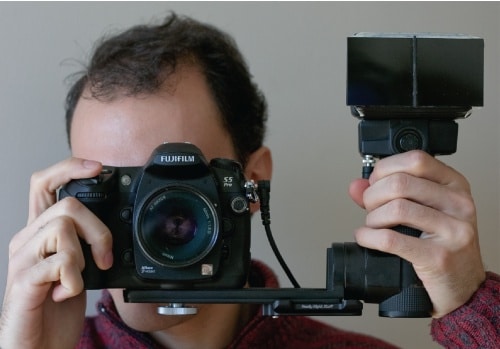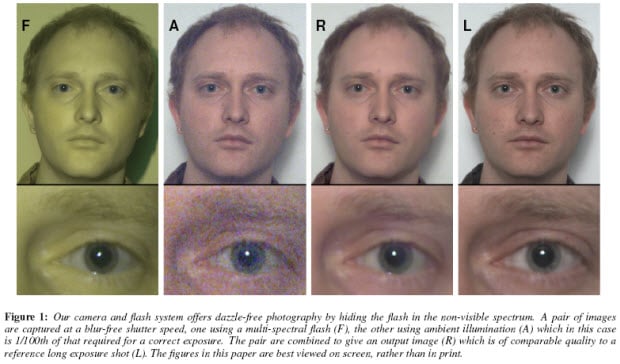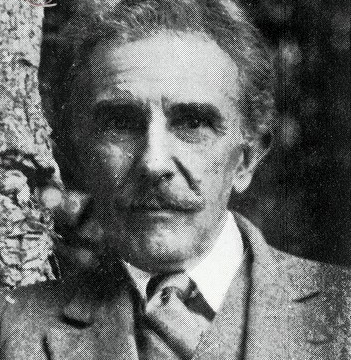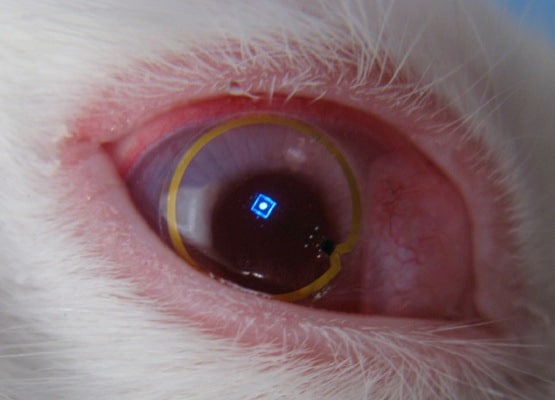
Researchers at New York University have figured out how to use light outside the visible spectrum to create invisible flash photographs – that’s a flash without the flash, for the layperson. Using a series of filters and standard camera gear, they’ve created a novel solution to, among other things, red eye. No longer will cute dogs, adorable cats, and poor Grandma become the guardians for the gates of Hell in family photographs.
The people responsible for this research, Dilip Krishnan and Rob Fergus, will be presenting their paper at the Siggraph conference in New Orleans this year.
It’s really quite an interesting process – unfortunately it doesn’t work too well with fast action shots yet because of the process. The camera first takes an image with infrared and ultraviolet light, creating a monochromatic image – then an available light shot is taken directly after. Some software that the pair have developed then stitches both images together, killing the noise from the second and using a reference point on the monochromatic image.
This seems like a pretty cool technique, albeit a little novel. The pair of researchers have some choice ideas for implementation of the technique, like cell phones and other small-format devices that often rely on available light. From Oh, Gizmo:
[If only camera manufacturers would modify] the Bayer pattern on the sensor to include UV-only and IR-only pixels, we would be able to implement the dark flash concept using a single image. Additionally, our large flash unit could be replaced with compact UV and IR LEDs giving a more controllable pulse duration and a more precise spectral emission, perhaps further reducing the visibility of the flash. This would also permit the dark flash concept to be implemented in small platforms such as cell-phones, where a flash is often needed due to poor lowlight performance on account of the small sensor size.
I highly recommend reading the technical paper (it’s a large PDF link). Here’s a link to the paper, and to the original site for the project.






Comments are closed.